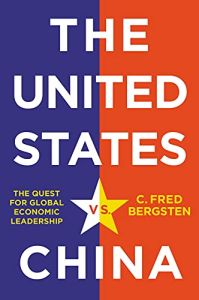
The United States vs. China
The Quest for Global Economic Leadership
Recommendation
Eminent policy expert C. Fred Bergsten’s starting point in this compelling look at the future world order seems straightforward: The systematic economic leadership of the United States has led to functioning global financial markets and a free and open world trading system. But what’s not so simple is how these “global public goods” will survive in changing geopolitical times. Bergsten cogently argues that China’s help in ensuring their continuation is crucial, making US–China cooperation imperative – even as the two nations fiercely compete in other arenas. Bergsten offers readers an original way of understanding complex geopolitical issues.
Summary
About the Author
C. Fred Bergsten is a nonresident senior fellow and director emeritus at the Peterson Institute for International Economics. He has held numerous positions in government, including at the US Treasury (1977–1981), on the National Security Council (1969–1971) and on the Advisory Committee on Trade Policy and Negotiations during the Trump administration.







Comment on this summary